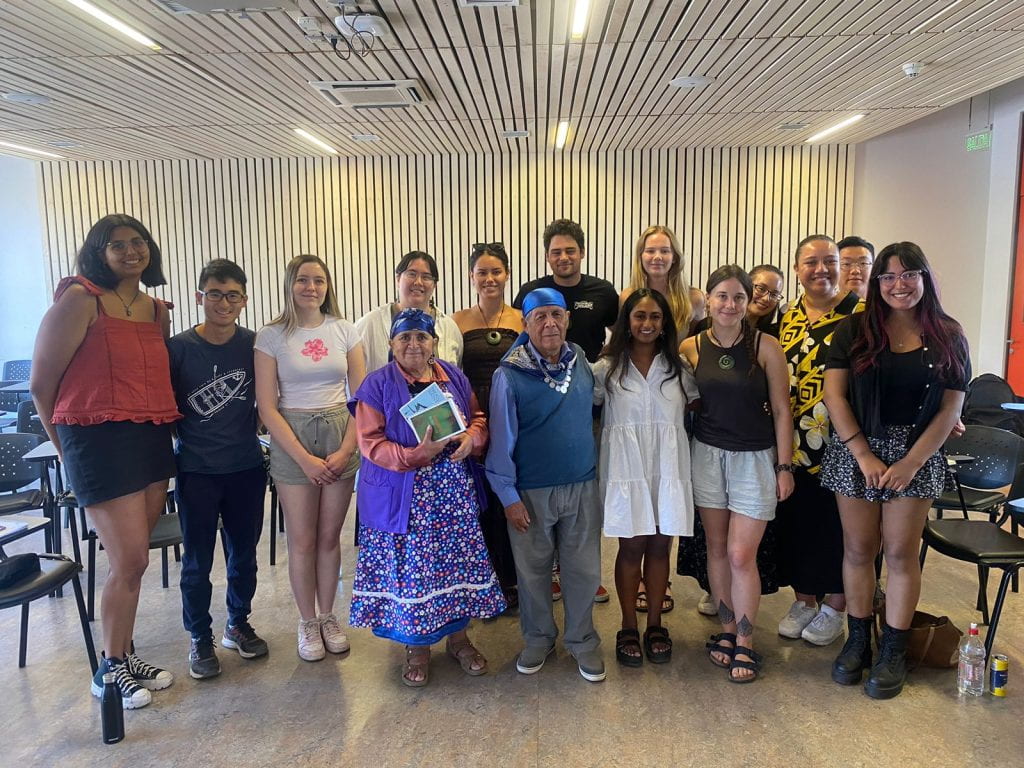We have now been home for just under a week. It has been a chance to catch up with family and friends, swim in the awa, and return to the garden. It has also been a chance to begin reflecting on what can only be described as a month of challenges, new learnings and memorable moments of new connections and relationship-building. Reflecting on the month as a whole, what was most meaningful was the relationships I was able to make. Something consistent throughout my previous blog posts was trying to communicate the feelings of disconnection and connection that occurred throughout my time in Chile, and this one is no different.

Perhaps most importantly, this trip helped form many wonderful connections with extraordinary Indigenous leaders, health practitioners, and activists. Sitting and listening and learning about their worlds and worldviews was a privilege. At times, it felt like I was looking in a mirror and seeing my own whānau. The strength of Indigenous people to survive colonisation and remain unapologetically true to themselves and their cultures transcends borders. From our visit to a Mapuche cultural centre, to our afternoon at the Ministry of Health, to yarning with a Mapuche social activist, I was filled with many emotions of hope, joy and grief. From these moments of connection came the confirmation that our lives are so interconnected (something confirmed by whakapapa). I don’t say this to suggest I could ever come to know the unique context of these remarkable people or their cultures merely to note that we face many of the same challenges at home. As I reflected on in last week’s blog, because of the shared experiences of colonisation and the unique context for Māori, Aotearoa is viewed as a world leader for Indigenous revitalisation movements and (re)indigenisation. I feel obligated to repeat this because I think it is such a vital learning to come out of this trip in listening to the challenges laid down by our hosts: when Māori are doing well, that sets an example for other places in the world; therefore, we must keep fighting as it matters to Indigenous communities over 10,000 kilometers away. Overall, seeing and hearing this whakaaro has helped inspire me to expand my connection to te ao Māori further and try to enact what I study (mana Māori Motuhake) in my everyday life.
To end, I am immensely grateful to everyone who made this trip possible at home and in Chile. To the fantastic group I travelled with, we left as strangers and have returned as friends. You all made this trip so much fun. It was great to see you all in your element, representing Aotearoa in your own way. It was also great to see you all grow and be resilient when things were difficult or outright crazy. Finally, to our amazing friends and classmates you made our trip full-stop. The warmth and manaaki you showed us made us feel at home. You almost definitely won’t read our blogs, but thank you for sharing your knowledge, homes, time and aroha. Ngā mihi nui kia koutou.
Ka kite anō
Tai
